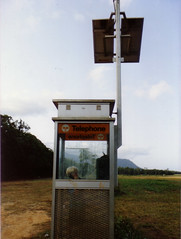Rambling commentary:
If one is in a car crash, and you know you made a mistake, you are told to lie about your liability. Or at the very least deny by omission. This is to limit the damages you may have to pay. It is also dishonest. The tax department would be very unhappy if you did this to limit your tax liability. So would the police. But it is ok to do it to non-government groups. Maximize your gain. Limit you losses. This is how the business world works. Hidden knowledge is beneficial to the profit statement. Yet this sometimes goes very wrong. For instance when the tobacco industry hid their knowldege of the health effects of tobacco, this can have deadly effects. It is in the benefit of too many people to change the rules. So they deflect the criticism to some bunch of people who are not powerful enough to fight back. For example, I saw a major catholic priest here in Sydney the other day quoted on the front page of a paper to say that we should ignore the problem of bad priests (his problem) and concentrate on another. When in reality we should concentrate on both. It is up to the society to determine what is bad and take appropriate action. But powerful vested interests direct the changes to ares where they are not involved. Another example: the recent slavery issue in China. This is what happens when an authority supresses questioning and say shit like you cannot question what we say and do because you will be considered to be disloyal and persecuted. You need to question and look. Ask the question why. I think the Germans understand only too well the need to question. So there is a force for disclosure, and there is a force saying, do what you are told and maintain deception. Complete disclosure does not work. Complete deception does not work. The trick is to know when which is appropriate and why.More to come on this topic. It is very simple, yet has very complex results.

